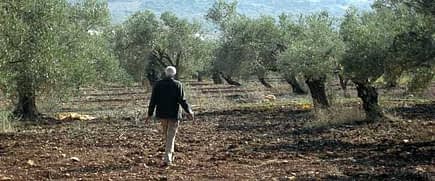The recent announcement that the United States International Trade Commission (USITC) will conduct an investigation into competitive conditions facing US olive oil producers should provoke some serious thinking. As noted on this site last week, such investigations do not come out of nowhere and are often undertaken with the intent to use their conclusions to launch anti-dumping charges and countervailing duties against foreign producers allegedly receiving illegal subsidies.
That the lobbying powers of the domestic olive oil industry have been strengthened in recent years is clear from the USITC’s willingness to undertake such a study. The impetus behind the industry’s request is best illustrated by an article in the San Francisco Chronicle last year:
The biggest threat to California’s historic olive industry isn’t the bad weather, disease, prohibitive harvesting costs and fierce competition already taking their toll, growers say: It’s the federal government. The United States has promised Morocco — one of California’s main competitors — hundreds of millions of dollars in aid to stimulate agriculture in that country…
It first needs to be said that California’s ‘historic’ olive industry was primarily dedicated to producing processed black, pitted olives, rather than olive oil, which began to be produced for the top of the market in the 1990s. It would be hard to find a producer anywhere in the world who would willingly compete with California black olives.
It should also be noted that in 2004 Australian olive oil producers (who occupy roughly the same niche in their national market as California producers do in theirs) failed in their claim before Australian Customs to establish that EU subsidies to olive growers were countervailable, as it could not be established that such subsidies benefited olive oil producers. Australian Customs relied partly on WTO Subsidies Agreement (and caselaw) to which it is a party (as is the US). Article 1 provides that not only must there be a subsidy, but there must be a benefit. Material injury must also be found.
More importantly, however, if there were an attempt to answer accusations of being ‘the biggest threat’ to the olive industry by canceling such aid, the Federal Government would run the risk of undermining what is these days an increasingly rare but important act of good will — the offer of agricultural expertise to, and the promotion of exports by, developing countries. Morocco (whose oil cannot realistically be seen as one of California’s main competitors) is not the only recipient of U.S. assistance. Iraq, Palestine and Albania are also among its beneficiaries and may well suffer from growing calls for such short-term protectionist measures.
The EU, with its Common Agricultural Policy (CAP) subsidies to growers in what are now its most desperate member states, will most certainly be in its crosshairs as well. While CAP has indeed been subject to serious financial fraud, often in relation to these subsidies, this is currently being addressed by Brussels, and in fact was substantially reduced by changes to such subsidies implemented a decade ago. Combined with advanced scientific methods of detecting product fraud (in terms of origin and quality/purity standards, which have also been the subject of new EU law), these problems will likely be solved in the near future, especially given the EU’s realization that it must now compete with US producers for the US market.
Limiting aid to struggling farmers and low-end producers to appease high-end US producers could well backfire. The market fundamentalism of attempting to gun down any and all state aid to poor farmers and overt protectionist policies will not only draw accusations of acute hypocrisy but may well encourage reciprocal actions against those agricultural subsidies that the US has declined to abandon for political reasons, such as cotton and corn.
The USITC report scheduled to come out in August 2013 will be a much needed and no doubt high quality analysis of the world market in olive oil. Hopefully it will be used wisely to support long-term international goals, not only the short-term interests of American olive oil producers.





